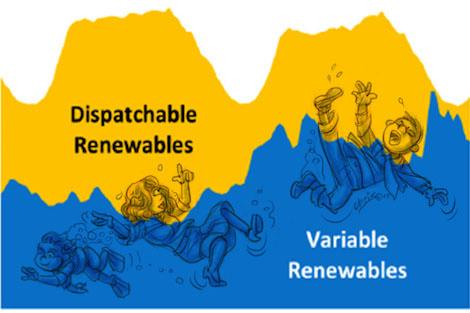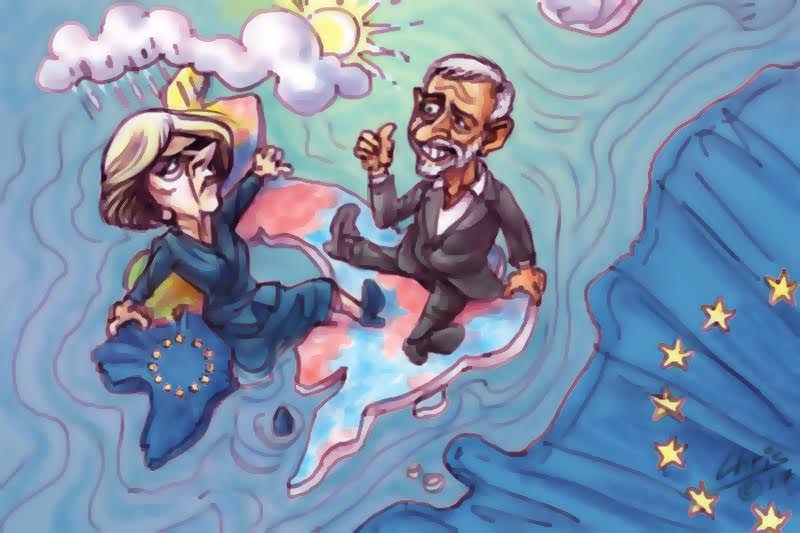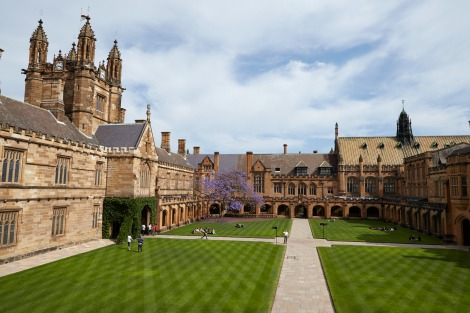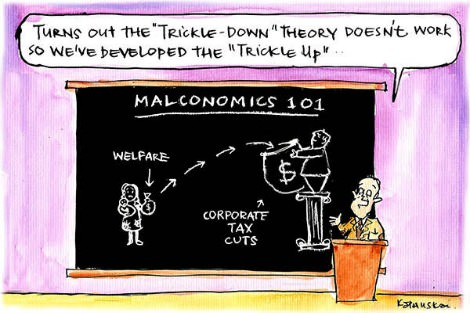Keywords: Meanwhile
There are more than 200 results, only the first 200 are displayed here.
-

INTERNATIONAL
- Todor Shindarov
- 07 August 2017
4 Comments
Today’s highly technological era amazes us with possibilities for human growth and innovation, but in our amazement we often forget to tackle various pitfalls. Arguably, the biggest risk is the emerging military technology, about which there are many unanswered questions. We are faced with many uncertainties: security risks due to loss of competitiveness, potential control over advanced weapons by terrorists and, most importantly, reduced comprehension by the wider society—let alone any participation in the decision making process, as the frenzied pace of technological development increases.
READ MORE 
-

ECONOMICS
The daily fluctuations of financial markets and the fractious debates over economic policy are concealing something deeper and much more disturbing. The future of money itself is in question. A decade after world banking almost collapsed in the global financial crisis, the questions raised have not been answered.
READ MORE 
-

ENVIRONMENT
- Greg Foyster
- 20 July 2017
11 Comments
After months of very silly debate about clean energy, one thing is abundantly clear: the electricity market is evolving much faster than most politicians and commentators can understand it. The story underneath all the distraction is that wind and solar have already changed the game. As that big Finkel report no one read made clear, 'there is no going back from the massive industrial, technological and economic changes facing our electricity system'.
READ MORE 
-

INTERNATIONAL
- William Gourlay
- 14 July 2017
2 Comments
With ongoing celebrations in Baghdad and scenes of devastation in Mosul, Iraqi Prime Minister Haider al-Abadi has announced the 'liberation' of Iraq's second-largest city from ISIS. This moment, after an umbrella force of military units fought for nine months to relieve Mosul of the ISIS yoke, represents a victory for the people and government of Iraq. However, many challenges loom, among them reconciling conflicting interests amongst Iraq's peoples and restoring the ravaged landscape.
READ MORE 
-

ARTS AND CULTURE
- Megan Graham
- 05 July 2017
Malcolm X famously delineated two types of slave: the 'house Negro' and the 'field Negro'. Although a 'house slave' is closer to their oppressor and receives special privileges, they are still a slave. Chocolat in his role as the clown Auguste seems to be just another kind of house slave. Despite his success he is still maligned and at the mercy of masters. While rubbing shoulders with the rich and famous, he is routinely denigrated. Attention, he learns, is not the same as respect.
READ MORE 
-

INTERNATIONAL
- Jeff Sparrow
- 09 June 2017
17 Comments
When Corbyn invoked the many against the few, he did so while advocating free education, the renationalisation of utilities and a break from the US alliance. By contrast, Blair coined the phrase in a speech where he urged listeners to put behind them 'the bitter political struggles of left and right that have torn our country apart for too many decades. Many of these conflicts have no relevance whatsoever to the modern world - public versus private, bosses versus workers, middle class versus working class.' We all know which version sits closer to Shorten's heart.
READ MORE 
-

EDUCATION
- Frank Brennan
- 24 May 2017
20 Comments
The level of consultation prior to the announced changes was appalling. But that is water under the bridge. It's time to enunciate some clear principles, and for respectful consultations to take place investigating how those principles can be best applied. This must be done within the realistic political environment in which we find ourselves. At the same time the Catholic system should ensure its schools are more available to the poor, enacting Pope Francis's desire for 'a Church which is poor and for the poor'.
READ MORE 
-

ARTS AND CULTURE
If two current Australian films are anything to go by, then one social issue weighing on local filmmakers in 2017 is the danger to women of emotionally and physically violent men. Neither film is a mere portrait of victimhood. The heroes of Cate Shortland's recent Berlin Syndrome and Ben Young's upcoming Hounds of Love - in the former, an Australian traveller in Europe, in the latter, a teenage school girl in suburban Perth - are ordinary women with both the will and capacity to fight back against their assailants.
READ MORE 
-

RELIGION
- Frank Brennan
- 15 May 2017
The reconciliation of this vertical relationship is possible only through the mediation of Jesus who embodies, lives and dies the reality of this reconciliation. He puts us right with our God and thereby establishes the basis for right relationship with each other. In many countries such as Australia, Timor Leste and South Africa, the public rhetoric and programs for reconciliation have, at least in part, been informed and underpinned by this theological perspective.
READ MORE
-

INTERNATIONAL
- Brian Matthews
- 04 May 2017
4 Comments
For all his demonstrable popularity, Reagan was a divisive figure. His Hollywood and TV show provenance were regarded with enduring suspicion by some, and many doubted his capacity to deal with the dangerous complexities of Cold War politics. Some even considered him a rogue. He was well into enjoying his overwhelmingly approved second term when, unnoticed by the President, his administration or anyone outside the city of Eugene, Oregon, I arrived in the United States.
READ MORE 
-

INTERNATIONAL
- Binoy Kampmark
- 03 May 2017
14 Comments
For various reasons, 'free' education in Australia has been qualified by HECS, which actually serves to wedge the liquid incentive of government and educational institutions on the one hand with the need for students to obtain affordable education on the other. Even that balance is now under threat, with a pre-budget announcement suggesting cuts to university funding and increasing costs to student degrees are in the offing. Universities are far from blameless in the present distorted funding model.
READ MORE 
-

AUSTRALIA
- Frank Brennan
- 10 April 2017
16 Comments
In an age of 'budget repair', social policy risks becoming just a sidebar to economic policy which is a contest of ideas about how best to grow the size of the pie thereby providing a slice for 'the deserving poor' without having to redistribute too much of the pie, while 'the undeserving poor' drop off the edge as they would have anyway. For those of us schooled in Catholic social teaching, the so-called 'undeserving poor' are the litmus test of our commitment to the human dignity of all persons.
READ MORE 